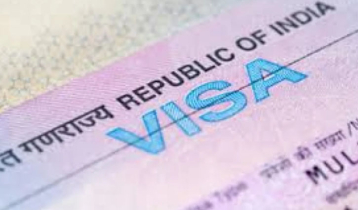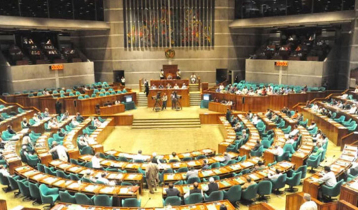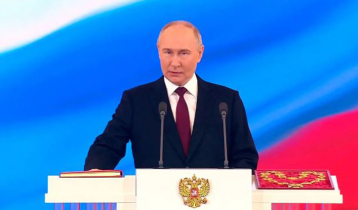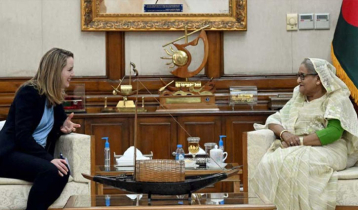BREXIT: Where’s the Exit?
|| risingbd.com
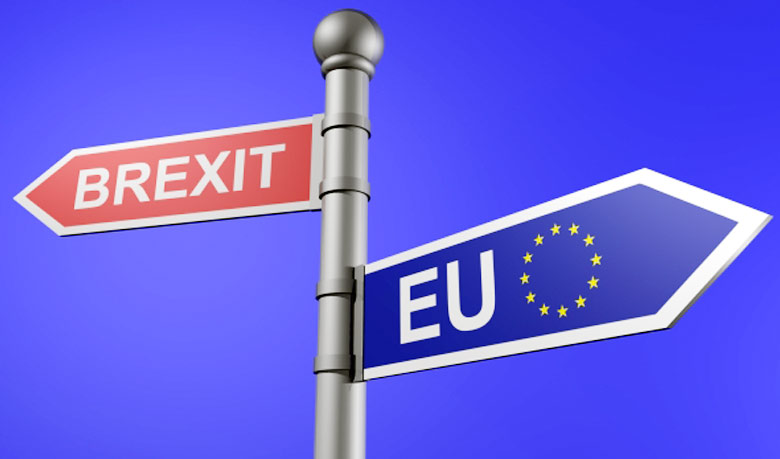
Debasish Das: The UK has voted to leave the European Union after Leave won 52 percent to Remains’ 48 percent. Following 43 years in the EU, the British electorate chose Brexit after a turnout of 71.8 percent. With more than 30 million voting, this is the highest turnout at nationwide vote since 1992. After the UK referendum result and it created massive difficulties in the heart of British politics. Now the big question of the people of Britain is - BREXIT! Where’s the Exit?
After EU exit referendum the share market went down and the value of the pound also has gone down. Global Markets React to UK’s EU Referendum Results UK’s referendum, which took place on June 23, 2016, resulted in the majority’s decision to leave the European Union. This historic decision created shock waves in global markets and has caused the British pound to hit a 30-year low.
Many are now trying to predict the economic impact of the UK’s decision to leave the EU. World traders are exploiting this time of uncertainty to seize unique trading opportunities as volatility continues.
Brexit - The Route to Exit and Key Risks
From a purely economic point of view a possible British exit from the EU–the so called “Brexit”–would cause more economic damage for the UK or providing more benefits and brighter future for the people of UK? The ‘Brexit Analysis and Business Reviews’ will identify, analyse and address risks and opportunities of Brexit for companies. The process will enable the management team be on top of political, economic and business impacts with a structured risk based decision approach. Political, legal, regulatory, commercial and company risk templates are drawn from the Risk Store and adjusted for all UK’s business. Still the mind of the people of UK, is it an uncertain future for EU nationals in the UK? Is it really question marked or will reach the Brexit goal? All these questions are in front of the people of UK. Basically now the politician will decide what will be the better option for the country.
Impact of Brexit:
Theresa May is clear that “Brexit means Brexit”. The UK is leaving the EU, even though the timescale is uncertain and our future economic relationship with other European countries is unclear. Planning will now start in earnest for negotiations with other EU countries – probably starting early next year - which could take up to two years to complete.
Most forecasters expect the uncertainty about our economic relationship with Europe to affect business investment and consumer confidence – and the early indications are consistent with this. But we don’t know how significant the economic impact will be. It was therefore entirely sensible for the Bank of England to keep interest rates on hold this week. Indeed, after seven years with the Bank Rate at just 0.5pc, the lowest level in recorded history, it is hard to believe much can be done with monetary policy now to support the economy. Cutting the interest rate even closer to zero could well do more economic harm than good. So what other levers does the new Theresa May government have to pull in order to help the economy through what could be a difficult period of heightened uncertainty?
Recently UK Prime Minister visited Europe and outcome noted that Merkel offers May breathing space on invoking Article 50 divorce clause. Mrs Merkel and Mrs May have agreed that with reason Britain should take their time before triggering Article 50 – a position the ... will need to win concessions more quietly behind the scenes by signing equivalence ... serious concerns to Mr Hollande that a harsh Brexit deal radically increases the risk of That Merkel allows her British colleague the apparent luxury of time is another classic move. The German chancellor is renowned for analysing complex issues for long periods of time before making a decision. So what is the article of 50?
Lisbon Treaty – Article 50
What is it? Article 50 is the process by which EU Member States withdraw from the EU. The process is triggered when a Member State notifies the EU of its decision to withdraw, and the article lays out the guidelines for negotiation with the withdrawing state and the EU. Initial negotiations take up to two years from the point of notification, with extensions possible given an unanimous EU vote to extend the process.
Who can trigger it? It appears that only the withdrawing State can trigger the start of the process. So the UK Parliament will likely decide when to officially start negotiations, although the EU will likely become increasingly hostile the longer that time passes before it is triggered. Does it need to be triggered? There is some disagreement on whether Article 50 is the only way to exit the EU. The leave campaign in the UK believes that they could repeal the European Communities Act 1972 which is the legal basis for EU law in the UK. If this bill is repealed then the UK would no longer be a member of the EU under UK law. Although theoretically possible, it is clear that this approach would certainly be very negative for relations between the EU and UK.
Trade agreements take years, as will Britain’s negotiations with the European Union, so the sensible approach is to start talks with the U.S., China, Japan, as well as the Commonwealth, which includes India, Canada, Australia, and others. Of course, there are others to consider too, but focusing on the world’s biggest economies (U.S., China, Japan) and the EU is a good start. There’s also the often-overlooked Commonwealth.
The Centre for Economics and Business Research (CEBR) has predicted. "The UK`s strength is its cultural diversity and its strong position in software and IT applications. The UK is likely to overtake Germany and Japan during the 2030s," the report said. The UK, which overtook France in 2014 to occupy the fifth position in dollar terms, will be pushed to sixth place by 2025 due to India`s rapid growth. However, from 2025, it will attain solid growth to overtake both Germany and Japan. The interesting forecast by the CEBR is that “The fastest-growing region in the world over the next 15 years will be Central Asia. The slowest-growing region in the world over the next 15 years will be western Europe”.
Global trade is far from free, so negotiating market access for trade and investment for British businesses is important, especially if the U.K. is to retain its international outlook that has contributed to its economic growth and strong position as the world’s fifth biggest economy.
What does a post-Brexit future look like for Britain?
What if...? The consequences, challenges and opportunities facing Britain outside the EU. According to Open Europe`s comprehensive Brexit report, UK GDP could be 2.2% lower in 2030 if Britain leaves the EU and fails to strike a deal with the EU or reverts into protectionism. In a best case scenario, under which the UK manages to enter into liberal trade arrangements with the EU and the rest of the world, whilst pursuing large-scale deregulation at home, Britain could be better off by 1.6% of GDP in 2030. However, a far more realistic range is between a 0.8% permanent loss to GDP in 2030 and a 0.6% permanent gain in GDP in 2030, in scenarios where Britain mixes policy approaches.
For saving the future trade relation UK with the EU. UK already started to work with different scenarios. In the most favourable case for the UK, Will the country receive a status similar to Norway or Switzerland? If so, there would be only minor increases in non-tariff barriers, but the cross-border trade between the UK and the remaining EU-27 would remain exempt from tariffs (“soft exit”). In the most unfavourable scenario, the UK would lose all trade privileges arising from EU membership (“isolation of the UK”).
What is the impact of Brexit on UK markets?
Laura Suter, editor at Fund Strategy, told in her article the result of the EU referendum was a shock to most, not least of all the markets. The days following the result saw stock price falls across the globe, with sterling taking the brunt of the sell off in the UK. However, most markets have rebounded, at least partially, and have returned to a more stable footing. The Bank of England has been a steadying hand since the result was announced, with Governor Mark Carney allaying some market fears. He did so initially by pledging more liquidity, and now by urging banks to use capital reserves to boost lending to businesses and individuals. But all eyes are on the Bank and its monetary policy committee after interest rate expectations have priced in a cut to 0.25 per cent in the coming months. Carney has made no secret his views on negative interest rates, and the impact they would have on the already hard-hit banking sector, but has not ruled them out entirely.
About the writer: Debasish Das, DBM (Distinction) MA, MBA (UK), Author of many books in multi disciplines, research scholar & freelance writer, worked at a renowned university in UK and at present Working in Facilities and crime Prevention Unit, Public Sector in UK.
risingbd/DHAKA/July 23, 2016/Augustin Sujan
risingbd.com





